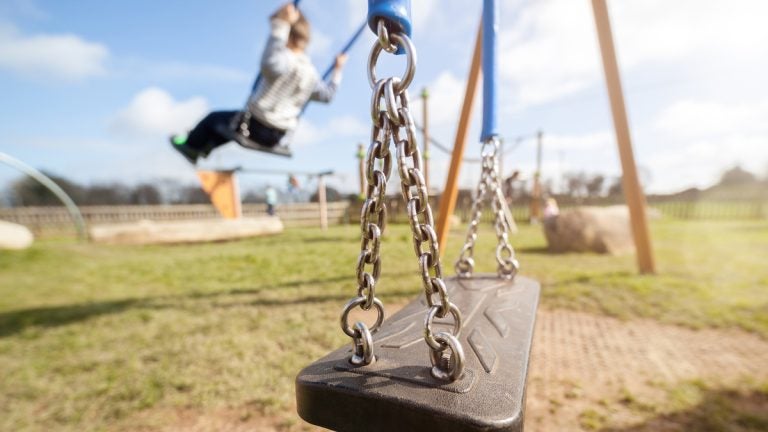Are some students too young to be expelled from school?

New Jersey law already prevents schools from suspending or expelling preschool-aged children, but a new bill that received final legislative approval Monday would extend those restrictions to second graders as well. Legislation sponsored by Assemblywoman Valerie Vainieri Huttle (D-Bergen) is headed to the governor’s desk to try and keep young kids in school.
Vainieri Huttle said she was inspired to draft the legislation when she heard the story of an Atlantic City kindergartener who was suspended for more than a month when he brought a box cutter to class.
“Suspensions and expulsions of young students for minor misbehavior is not only a misguided concept, it raises serious concerns about bias,” Vainieri Huttle said in a statement following the assembly vote. “The curtailing of unnecessary suspensions and expulsions for minor misbehavior will provide a benefit to students who are not a threat to others as well as diminish school dropout and crime rate that often follow disciplinary removal from school,” she said.
It’s unclear how many students would be affected by the legislation. According to the state Department of Education’s annual report, more than half of the elementary schools in New Jersey did not report any incidences warranting suspension into the HIB-ITP system that tracks incidents of violence, vandalism, weapon offenses, drugs, harassment, intimidation, and bullying in schools. However, the remaining 42 percent of schools (roughly 836 of the 1,997 elementary schools in the state) did report one or more incidences resulting in suspension.
Vainieri Huttle’s bill would codify the current law and prohibit expulsions unless a student violated the “Zero Tolerance for Guns Act.” Under the “Gun Act,” any student found in possession of a firearm on school property would be removed from “school’s regular education program” for at least one year.
The bill would also require public school districts and charter schools to implement an early detection and prevention program to identify students in preschool through second grade who struggle with behavioral and disciplinary problems.
Vainieri Huttle said the bill is not an unfunded mandate and that funding for it would be incorporated into the intervention and referral services that are required in schools under current state Board of Education regulations.
Pinpointing elementary school expulsion data is difficult because New Jersey, unlike other states, does not officially use the word “expulsion” in all of its data collection. According to David Saenz in the Department of Education, a school or school district often will report long-term suspensions or “alternate education” programs for kids who have been asked not to return to school. There are also instances where parents will be asked to take their child home without any formal documentation of suspension or expulsion, which also makes quantifying the problem difficult.
Shira Baron, an attorney for the Education Law Center (ELC) testified in favor of the legislation in May. She said “research has shown that using suspensions to punish children who are younger than seven or eight is ineffective particularly because at such a young age, children cannot understand the significance of a suspension or its use as a consequence for their behavior.”
While she supported the intent of the bill, however, Baron said more needs to be done —specifically, extending the expulsion protection through the fifth grade instead of stopping at second grade. Speaking for the ELC, Baron also said the exception for the “Zero Tolerance for Guns Act” was “worrisome.”
In her testimony, Baron said, “It does not make sense to suspend preschoolers or children in kindergarten through second grade under the ‘Zero Tolerance for Guns Act’ as children that young cannot fully comprehend the danger of guns and the severity of an act involving guns.”
Baron cited a study conducted by Sara Rimm-Kaufman, associate professor of education at the University of Virginia that found that problematic behavior in elementary school can be evidence of academic inefficiencies which removal from school exacerbates rather than solves.
Cecilia Zalkind, president and CEO of Advocates for Children of New Jersey also supported the bill; Zalkind said the early detection program will be its crucial element. She said the legislation sends “an important message that suspension and expulsion is not appropriate for a young child.”
Vainieri Huttle, the bill’s sponsor, said she hopes the governor signs the bill into law when it reaches his desk. “We need to make sure that these kids are getting the help that they need,” she said. “When they’re expelled and have to jump from school to school, we have to make sure someone is there supporting them.”
_____________________________________________
NJ Spotlight, an independent online news service on issues critical to New Jersey, makes its in-depth reporting available to NewsWorks.
WHYY is your source for fact-based, in-depth journalism and information. As a nonprofit organization, we rely on financial support from readers like you. Please give today.




